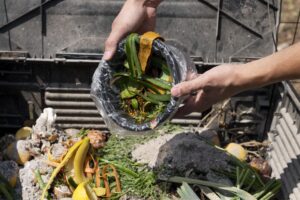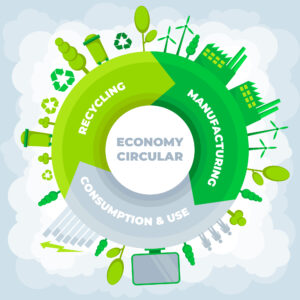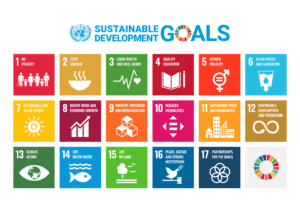Home / Publication / Article / Soil Improvement Agent: The Magic of Compost as a …
Soil Pollution
Soil Improvement Agent: The Magic of Compost as a Form of Circular Economy
Septian Hadi, Nadhila Fauziah, Shefia, Alif, M Davy, Alvina PN
June 10, 2024
Introduction
Fertile soil is the key to healthy and productive plant growth. However, over time and with intensive use, soil fertility can decline. One environmentally friendly and effective solution to improve soil fertility is by using compost.
What Is Compost?

Compost is an organic material produced from the decomposition process of organic matter by microorganisms such as bacteria, fungi, and earthworms. This process transforms organic waste into a humus-like substance rich in essential nutrients for plants.
Compost fertilizer is beneficial for various reasons: it does not harm the environment, requires minimal cost, is easy to make, and its materials are easy to find.
Pereira et al. (2014) state that organic matter acts as a buffer that improves the physical, chemical, and biological properties of soil. Composting is the process of breaking down organic matter by microbes that use it as an energy source.
Composting has long been used as an effort to reduce organic waste (Dewi and Tresnowati, 2012). The process involves creating a balanced mixture of organic materials, providing sufficient water, ensuring proper aeration, and adding an effective inoculant (composting activator).
What is a Circular Economy?

It is an economic system concept that promotes extending the useful life of raw materials, components, and products for as long as possible, aiming to foster economic growth while minimizing environmental and social damage (Ellen MacArthur Foundation, 2015).
According to Munaro et al. (2020), the focus in a circular economy is on the reuse, repair, remanufacturing, and recycling of products, materials, and components.
As a result of organic decomposition, compost is an agent rich in benefits:
- Improves Soil Structure
- Provides Nutrients
- Enhances Soil Microbial Activity
- Reduces the Need for Chemical Fertilizers
- Promotes Healthy Soil Life
Why Can Compost Be a Miracle in a Circular Economy and What Are Its Benefits or Impacts?

Compost, which comes from organic waste, exists in large quantities. According to the National Waste Management Information System (SIPSN, 2021), there was an accumulation of 7.5 million tons of waste. Organic waste is also relatively easy for communities to process through waste management activities, for example, using larvae (maggots) and Black Soldier Fly (BSF) to break down waste so it can be utilized for agriculture and livestock (Popa and Green, 2012).
When compost is decomposed by larvae (maggots), it can create economic growth potential. The cultivation of BSF larvae has a significant market prospect, and livestock businesses that use larvae can save on feed costs, thereby increasing business efficiency (Bahtiar, R., & Kamelia, K., 2023). Compost decomposed this way is processed much faster, provides better nutrients, and minimizes the use of chemicals in agriculture, which in turn reduces environmental damage, lowers carbon emissions, and protects ecosystems. The economic impact of compost processing can help eradicate poverty and reduce hunger. All these achievements align with the 17 targets of the Sustainable Development Goals (SDGs) for 2030.